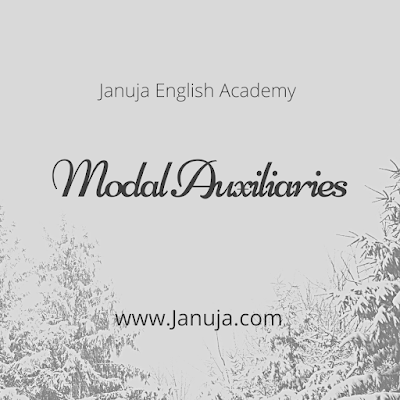Modal Verbs express the attitude of the speaker. They indicate possibility, ability, obligation, suggestion, willingness, potential, expectation, or permission.
1. May and Might are used to express possibility of something. May shows greater possibility than might.
Examples:
* Saritha may come tomorrow.
* Tina might come tomorrow.
( The probability of Saritha’s coming is higher than Tina’s )
2. Can indicates ability but Could indicates ability with an option.
Examples:
* I can do that work. ( I am sure )
* I could do that work. ( I am not so sure )
# Can is also used for present ability and Could is used for past ability
Examples:
* Rahim can lift a 50 kg with one hand. ( The present ability )
* Venkat could run 10 km an hour when he was young. ( The past ability )
3. Must and have to are used when we think that it is necessary to do something.
Examples:
* James must attend the party in order to meet her.
* I have to go now.
4. Should and ought to are used to talk about an obligation or compulsion.
Examples:
* You should stop smoking.
* Bujji ought to wake up early tomorrow in order to catch the bus.
Practice Bits:
Fill in the following blanks with suitable modal verbs studying the hints that are given in the brackets.
1. Meenakshi _________ make a toy car with match sticks. (ability)
2. Pravallika _________ stop going to her aunt's house. (compulsory)
3. Deeksha _________ leave for Mumbai tomorrow. (probability)
4. Naveen _________ look after his parents well as they have become old. (obligation)
5. Seetha ________ come here tomorrow. (probability is not certain)
6. Giri ________ move trucks with one hand when he was young. (past ability)


